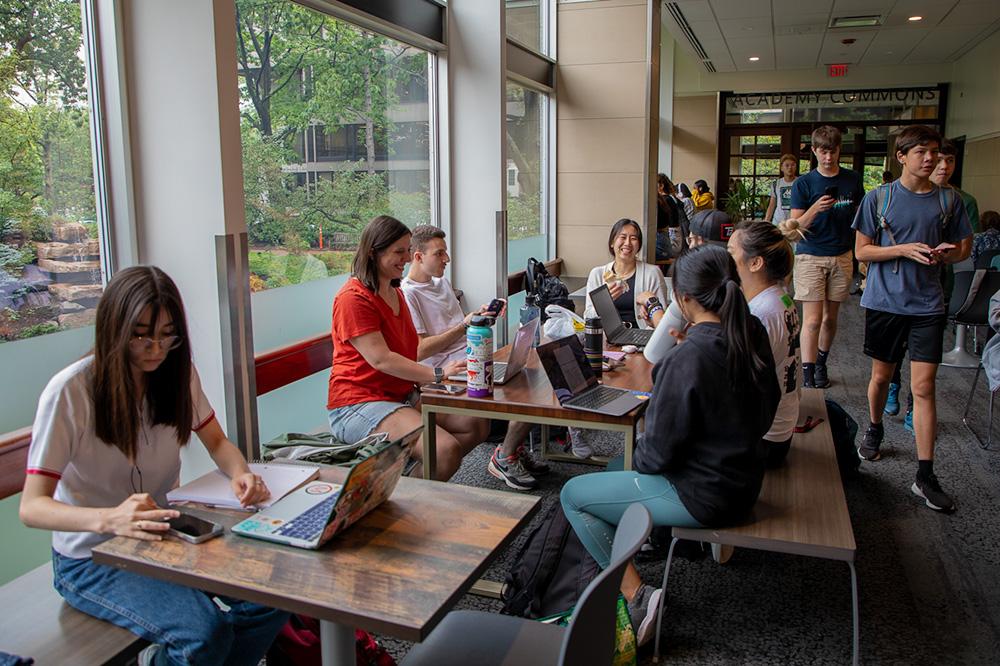
Masks were required everywhere just six months ago on the Boston University campus except in private rooms, individual residences and dining halls.
Now, students and faculty are only required to wear masks on the BU Shuttle and in healthcare settings “until further notice,” Judy Platt, Chief Health Officer and Executive Director of Student Health, said in a message to the BU community in August.
Cheng Gao, a sophomore in the College of Arts and Sciences, said he does not usually wear a mask, and he believes it is safe to not wear one right now.
“[COVID-19] is not a really serious thing or issue,” he said. “I’m fully vaccinated, three doses.”
Suffolk County has seen decreases in COVID-19 cases since early summer — 754 new confirmed cases from Sept. 1 to Sept. 8 compared to 1,110 new cases in August, according to the Bureau of Infectious Disease and Laboratory Sciences of Massachusetts.
If masks are required in a classroom, or if he is sick, Gao said he would wear one if it makes others “feel comfortable.”
Greg Marinovich, master lecturer in journalism at the College of Communication, requests students wear masks in his classroom because he said the changes to the masking rules are “strange.”
“We have a very transmittable contagious disease that is transmitted by air,” Marinovich said, “that stays in the air for two to three hours in a closed room, that has got a variant… yet we are not asking people to mask even in a closed classroom.”
Marinovich also said he has concerns about long COVID, which are long-term effects from the COVID-19 virus.
“People who get long COVID, it’s months of illness, brain fog,” he said. “How are you going to study with brain fog? How do you mean to have a good life as a student with brain fog?”
Marinovich said he explained his reasoning to students, for example, some of the rooms he teaches in “have no windows and the HVAC is held together with duct tape.” Every student has agreed to wear masks in his class.
“Many students didn’t have masks with them,” he said. “I gave [a student] money to buy masks for the class, and everyone wore them. It’s logical.”
Professor of Global Health and Medicine David Hamer said that although masks are optional, he sets an example by wearing a mask.
“I just had my first class yesterday and the co-instructor and I both wore masks,” Hamer said. “I think that the end result was that…pretty much every student had a mask on.”
Hamer said he advised people to wear a mask if they feel they are at risk.
“Some faculty have told me that only about 10% of students are wearing masks in their classroom,” Hamer said. “It’s optional, so it’s really up to them and I think it depends on the faculty, how they feel about that.”
Hamer also noted that the Massachusetts wastewater COVID-19 tracking data, a method to track COVID-19 trends in a community, has been “at pretty low levels.”
For Sakshi Sharma, a graduate student in CAS, not wearing a mask is “relieving” and allows more time for studying, she said.
“There are some people who have breathing difficulties.” she said. “In that case, it helps, you can focus on your studies without having to focus on your mask.”
She also noticed social benefits, including recognizing people’s faces and being able to hear better.
“Sometimes, because of the masks, we were not able to understand what they’re trying to communicate,” Sharma said. “But now with the mask mandate being lifted up, we can actually understand what they’re trying to say and there is better communication.”


























































































































